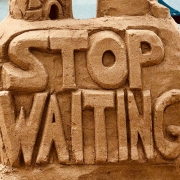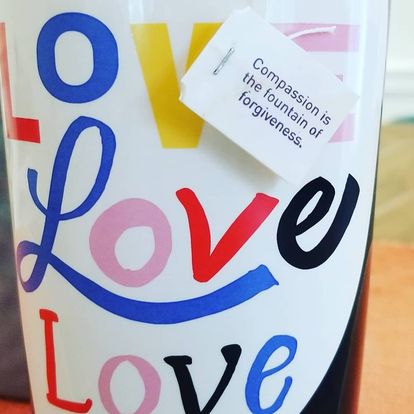Boundaries, Balance, and Being the Parent You Need to Be
By Megan Bayles Bartley, LMFT
“My 12 year-old daughter thinks I’m the meanest parent in the world because I won’t let her go to the mall with a friend unsupervised. Am I being overprotective? Am I pushing her away by setting these limits?”
If you’ve ever asked yourself questions like these, you’re in good company. At The Mindfulness Center, I hear variations of this concern almost daily from parents trying to find the delicate balance between protection and freedom, between setting boundaries and supporting independence.
Let me offer you this reassurance: Boundaries aren’t barriers to connection—they’re the foundation for it.
The Paradox of Boundaries
Adolescents need two seemingly contradictory things from us: limits and freedom. They need to know that someone is keeping them safe, even as they’re driven to explore and take risks.
One father put it beautifully: “My son pushes against my boundaries constantly, but I can tell he’s actually checking to see if they’ll hold. There’s relief in his eyes when I stay firm, even as he’s arguing with me.”
Your teenager’s job is to push boundaries. Your job is to be the steady presence that holds them.
Setting Boundaries with Compassion
The way we set boundaries matters as much as the boundaries themselves. When we approach limit-setting from a place of fear or control, our teens naturally resist. When we set boundaries from a place of care and clarity, we invite understanding (even if it’s accompanied by some eye-rolling).
Try this mindful approach:
- Connect before correcting (“I know this isn’t what you wanted to hear…”)
- Explain the values behind your boundary (“Your safety is my priority…”)
- Acknowledge their feelings (“I understand you’re disappointed…”)
- Offer appropriate choices within your boundary (“You can go to the mall with your friend if I can be nearby”)
This approach honors both your parental responsibility and your teen’s growing need for agency.
Creating Space for Your Own Needs
Parenting adolescents is exhausting, emotionally complex work. You cannot show up for this journey if you’re running on empty.
One mother shared how transformative it was when she started blocking out one hour each week just for herself: “I felt guilty at first. But I’m a better parent when I have that time to reconnect with myself. My son actually seems to respect me more now that I respect my own needs.”
What do you need to feel centered and resourced? Is it quiet time for reflection? Movement? Creative expression? Connection with other adults who understand your journey?
Whatever it is, claim it. Schedule it. Protect it.
This isn’t selfish—it’s essential. When you honor your own boundaries and needs, you model self-respect for your teen. You show them that being a parent doesn’t mean being a martyr—it means being a whole, healthy human.
The Gift of Imperfect Parenting
In all my years as a therapist, I’ve never met a perfect parent. But I’ve met many courageous ones—parents who show up day after day, who apologize when they make mistakes, who keep trying even when it’s hard.
Your teen doesn’t need you to be perfect. They need you to be real.
They need to see how you navigate your own emotions, set healthy boundaries, repair relationships, and treat yourself with compassion. These lived examples will shape them far more powerfully than any lecture or rule ever could.
So breathe deeply. Trust yourself. Remember that underneath all the emotional intensity of adolescence is a child who still needs your steady presence.
At The Mindfulness Center, we understand the unique challenges of parenting adolescents. If you’re feeling overwhelmed or simply want support on this journey, reach out. Our providers are all Marriage and Family Therapists and are experts in navigating relationships.
You are enough. You are not alone. And it’s okay to ask for support.
Take a deep breath. You’ve got this.
 Megan Bayles Bartley, MAMFT, LMFT, is a proud member of The American Society of Clinical Hypnosis and The International Society of Hypnosis.
Megan Bayles Bartley, MAMFT, LMFT, is a proud member of The American Society of Clinical Hypnosis and The International Society of Hypnosis.
She has written several contributions for the Ericksonian FoundationNewsletter multiple times! She’s even had her book RESET: Six Powerful Exercises to Refocus Your Attention on What Works for You and Let Go of What Doesn’t reviewed in the Newsletter. Read the review HERE!






 After acquiring my Master’s Degree at the University of Rochester, I returned to my home state of Kentucky. For the past 5 years, I have been serving adults, teens, and couples at The Mindfulness Center. I help clients heal and grow through means of self compassion and self-derived skills. I have felt especially drawn to attachment theory and Internal Family Systems, as I have found them to be the most empowering and effective modalities for complex trauma and relational distress. I hope to help people make use of their suffering and find purpose and meaning through life’s struggles.
After acquiring my Master’s Degree at the University of Rochester, I returned to my home state of Kentucky. For the past 5 years, I have been serving adults, teens, and couples at The Mindfulness Center. I help clients heal and grow through means of self compassion and self-derived skills. I have felt especially drawn to attachment theory and Internal Family Systems, as I have found them to be the most empowering and effective modalities for complex trauma and relational distress. I hope to help people make use of their suffering and find purpose and meaning through life’s struggles.





 Megan Bayles Bartley, MAMFT, LMFT
Megan Bayles Bartley, MAMFT, LMFT




